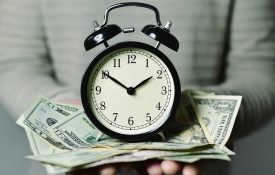-

Thinking of Time as Money Stifles ‘Green’ Behaviors
A study demonstrates that the way we’re paid—not just how much—can exert a disturbing influence on our willingness to recycle. Visit Page
-

The Ethical Calculus of the Tax Cheat
Researchers propose that people behave immorally only to a certain extent so that they can profit from their misconduct but still feel moral. Visit Page
-
One Way to Rein in Powerful People? Honest Feedback
While it’s standard practice for supervisors to provide regular feedback to their subordinates, it’s far less common for employees to get the opportunity to candidly appraise their supervisors’ performance. A new study suggests that honesty Visit Page
-
Bosses Can Spot Self-Serving Workers
Supervisors are surprisingly accurate at distinguishing between employees who put in extra effort out of altruistic concern for the company, and those who suck up just to get ahead, according to a new study from Visit Page
-
The Ulysses Strategy
The New Yorker: As the University of Chicago economist Richard Thaler tells the story, a group of fellow-graduate students in economics were at his house one night in the late nineteen-seventies, socializing before the dinner hour. Visit Page
-
Just Looking at Cash Makes People Selfish and Less Social
The Atlantic: When it comes to money, people aren’t pursuing stacks of green paper or a collection of copper disks—they’re interested in what those objects represent. The pull of money, the economy and most behavioral Visit Page

